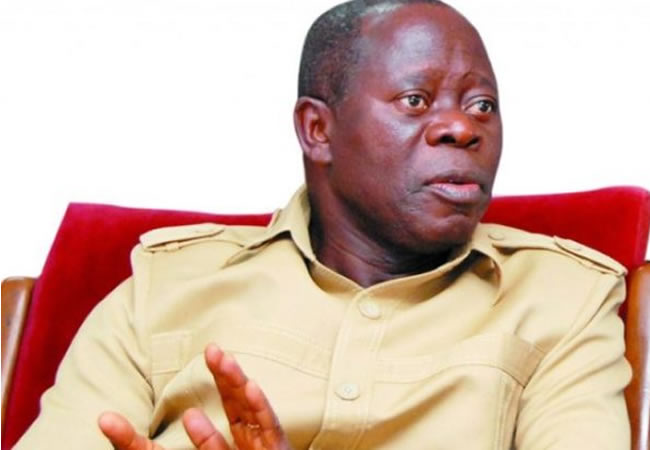In what some observers see as a potential nod to his political benefactors, Governor Monday Okpebholo of Edo State has nominated Cyril Oshiomhole, son of the prominent political figure and former governor Adams Oshiomhole, as Commissioner for Health. This nomination, alongside other appointments, has sparked a wave of speculation across Edo State, with many citizens questioning whether the governor’s decisions are rooted in merit or political loyalty.
Adams Oshiomhole, a towering presence in Edo State’s political landscape, served as governor, led the All Progressives Congress (APC) as its national chairman, and now sits as a senator. His son’s appointment to such a vital position raises questions about Governor Okpebholo’s intentions, with some suggesting this could be a gesture of loyalty to a key political ally and mentor. Observers note that this appointment could be seen as a way for the governor to solidify his support from Oshiomhole and his faction of the APC, whose backing might be crucial for Okpebholo’s political stability and future ambitions.
Read Also: BREAKING: Shettima, Sanwo-Olu, others arrive in Edo for Okpebholo’s inauguration
Cyril Oshiomhole’s qualifications include a Bachelor’s degree in Medicine and Surgery from Ahmadu Bello University, followed by a Master’s in Public Health from Tulane University, with a focus on Environmental Health, Toxicology, and Disaster Management. While he brings impressive academic credentials and specialized training from esteemed institutions such as Harvard University and Queen Mary University in London, his appointment comes amid a backdrop of political intrigue.
Additionally, Governor Okpebholo has nominated former national assembly member Samson Osagie as Attorney-General and Commissioner for Justice, a seasoned politician with ties to the APC establishment. Barrister Musa Ikhilor has also been appointed Secretary to the State Government (SSG), adding to the list of political insiders now poised to take on key state roles.
These appointments come at a time when Edo State faces significant challenges, including economic difficulties, youth unemployment, and critical infrastructure needs. Many Edo residents wonder if these high-profile nominations will translate into tangible development or if they are merely political maneuvers to appease powerful figures. Governor Okpebholo’s administration will be closely watched by the public, who are eager to see whether his governance will address the state’s pressing issues or primarily serve the interests of his political allies.
Only time will reveal whether these appointments are steps toward progress for Edo State or strategic moves to consolidate power within the state’s political elite. For now, the people of Edo remain vigilant, hopeful that Governor Okpebholo’s choices will ultimately prioritize the public good over political ties.



